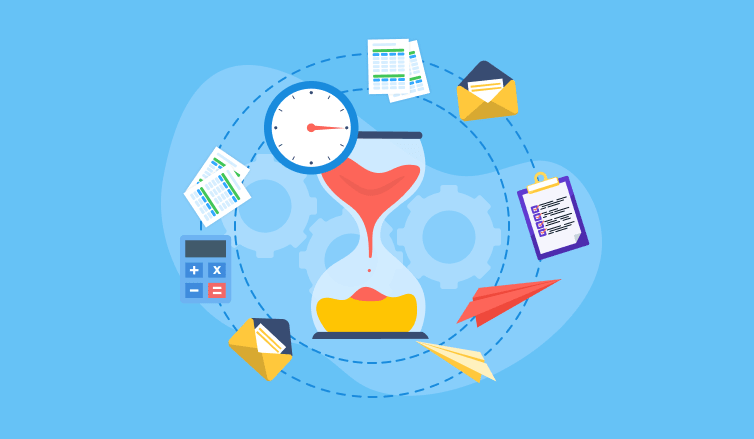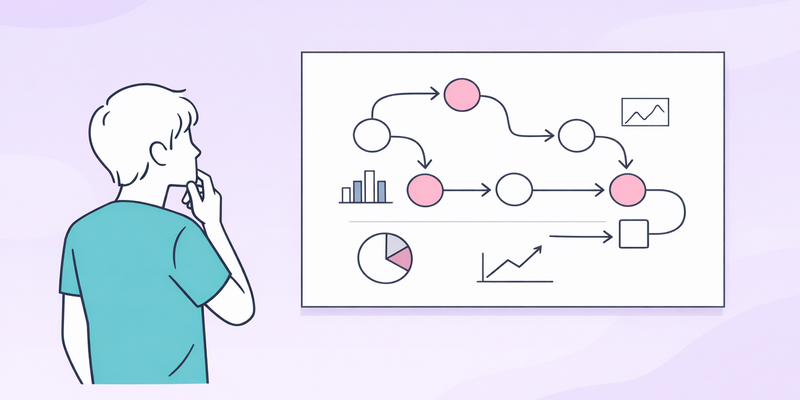
Every organization uses performance management in some form or another. The problem is: most employers address employee performance issues as they arise instead of creating an environment that motivates their teams to do outstanding work. They forget that the very purpose of employee performance monitoring is to prevent serious problems and promote positive workforce behaviors that drive productivity and success.
So, how to establish an effective performance management system that produces benefits for employers and employees alike?
This post will tell you about the seven key elements of performance management and why it’s so vital to take performance management seriously. Read on to get inspired to improve performance management in your own businesses and enhance team outcomes.
What Is Performance Management?
Performance management is a series of practices that companies use to develop a productive work environment where everyone does their best and achieves the set objectives without much hindrance.
A standard performance management process involves such steps as:
- Goal setting
- Team communication
- Appraisal and analysis
- Performance improvement planning
- Employee training
- Progress tracking
- Positive reinforcement
You can apply performance management to individual employees or your team as a whole, depending on which issues you’re trying to resolve. In either case, managers are expected to remain unbiased, avoid favoritism and implement credible data throughout the performance management cycle. And in case done successfully, the process can produce many benefits and help a business thrive.
Why Is Performance Management Important?
Effective performance management addresses employee motivation and stimulates team productivity. Therefore, it brings about the following gains:
- Lower business costs due to better staff retention, fewer project overruns and less waste of resources.
- Superior financial results due to higher-quality work results and greater outputs.
- Stronger employee motivation since staff members better understand their role in the organization and are offered opportunities for growth.
- Improved management outcomes due to higher process transparency and better alignment of high-level business goals with daily team activities.
7 Main Elements of Effective Performance Management
1. Assess your current performance management system
Most likely, your company already implements some performance management measures. You might use a timesheet software solution to collect project progress data and analyze how your team uses its time. Now you need to understand whether your tech stack is enough to help you monitor team performance.
Ask yourself these questions:
- Does the system provide a consistent performance appraisal and improvement flow?
- Are your current performance standards realistic? Are they in line align with project objectives and high-level business goals?
- Is the system specific enough? Does it clearly explain which steps should be taken in different scenarios?
- Is the system flexible? Does it allow any changes and modifications if necessary?
There are more ways to track and save time than you think. Pass our quiz to learn more.
2. Set SMART performance goals
Review your team’s work scope and analyze what time and effort this work would t
ake. Receive feedback from your team members regarding their productivity levels and possible impact factors that can affect performance. Make sure your goals are SMART – otherwise, it would be hard to track their achievements.
The following can help you come up with more realistic performance goals:
- Description of job purposes, duties, and responsibilities;
- Previous data on how much time and effort regular work tasks tend to take;
- Feedback from your employees.
3. Have a clear performance improvement plan
A performance improvement plan is a document that explains how an employee or a team must achieve the set performance goals step by step. To create such a plan, you need to:
- Identify your team’s performance shortfalls
- Understand why those shortfalls occur
- Find workable ways to address the identified problems
- Describe the recommended improvement methods in detail
- Make sure your team members get what’s expected of them
Performance improvement planning requires a fair amount of research, competence and time. For instance, when evaluating your team performance, you should remain objective and use credible data. Plus, you need to make sure the developed improvement strategy is specific enough and feasible to realize.
So, think through every action your team must implement to improve its performance. Don’t forget to set realistic deadlines and clarify how you will assess the results. Remember that a good improvement plan is detailed enough but not overflowing with information. Otherwise, it will only confuse your employees instead of motivating them to get better.
4. Focus on employee development
Most of your employees will be motivated to do their best and work harder if you give them enough opportunities to grow. Thus, individual development plans will become a major contribution to your performance management system.
Show employees which promotion opportunities they have in your company and which criteria they should fulfill to take on a more responsible role and get a higher position. Provide them with necessary training and mentorship whenever possible – this will guarantee your team members’ skills and competencies remain up to date, and there’s no need to recruit new candidates frequently.
5. Track performance progress consistently
Regular progress monitoring reveals how effective your performance improvement plan was over time and whether your employees succeeded in bringing it to life. It provides you with valuable data and helps get insight into everything that went wrong throughout the improvement process.
So, be sure to log your team members’ activities consistently and use high-quality project management software to make progress tracking a breeze.
Consider actiTIME:
- This software shows how your employees use their time and which tasks they work on every day.
- It lets you track hours against specific task estimates, monitor staff-related costs and control your budgets.
- It includes comprehensive performance reports that allow for in-depth productivity analysis.
In case you want your team to better comply with deadlines and increase work efficiency, actiTIME is the best tool to try.
6. Provide and receive regular feedback
The importance of feedback cannot be overestimated in any area of activity. In performance management, it is one of the main factors that affect the end result and define the efficiency of taken measures. Depending on the nature of positions and duties, the feedback can be limited to the communication between the manager and the employee or include customers’ reviews and other managers’ observations.
The positive effects of a regular feedback are not limited to a more accurate performance evaluation and more realistic expectations. It also creates a workplace culture where employees feel comfortable asking for help and bringing up issues as early as possible. This is an important part of performance management, as it prevents employees from attempting to self-solve the problems without informing their managers or team members.
7. Focus on positive reinforcement
Negativity related to performance appraisal processes is the main reason why they tend to be disliked and avoided by all participants. And while it’s hardly possible to entirely remove negative aspects from the performance appraisal and management procedure, focusing on positive events is more efficient than using a penalizing system that makes everyone feel vulnerable.
What’s also important here is using the power of recognition. Depending on the company’s resources and practices, it can take the form of bonuses, pay raises, non-financial rewards, thank-you notes or face-to-face conversations. Providing career opportunities is essential for long-term performance improvement: this is one of the biggest motivators for doing outstanding work.
Summary
Many employers still think that performance management is just a necessary evil. However, it doesn’t always have to entail negative experiences.
By including the reviewed seven key elements in your performance management process, you will make it more pleasant and beneficial for your entire team and business. Clarity, structure and focus on employee development are the things that will help you build a system that fosters a positive work environment and drives productivity.














































![9 Best Contractor Time Tracking Apps for 2026 [Free & Paid]](https://www.actitime.com/wp-content/uploads/2020/10/how-to-find-efficient-contractor.png)

